The story of Marie Perline, a beneficiary of the biogas programme in Madagascar
In 2018, the ENGIE Corporate Foundation joined forces with CODEGAZ, an internal NGO at the ENGIE Group, to support the development of biogas as the energy of the future and to improve the living conditions of Madagascan farmers. Thanks to this green energy, the local population saves money, earns additional income and contributes to the maintenance of the region’s biodiversity.
A green energy access project launched in 2018
A little more than a year ago, CODEGAZ was commissioned to build ten biogas digesters to provide energy for cooking, lighting and fertiliser for farmers in the Fianarantsoa region 400 km south of the capital. Biodigesters allow farmers in the region to use organic waste to produce biogas and digestate via methanisation.
Biogas, a source of green energy, allows these isolated populations to cook food and light their homes. As an alternative to wood for cooking, it limits deforestation and promotes biodiversity in the region. Digestate (a residual product of methanisation) is used as an agricultural fertiliser, especially in rice fields.
The installation of the digesters is accompanied by a training programme. The aim is to train Madagascan villagers in how to operate, run, maintain the digesters and use them for lighting and cooking with biogas. Farmers in the region then benefit from a sustainable source of energy and are self-sufficient by using it on a daily basis.
Marie Perline, a farmer, is one such beneficiary of the programme
Marie Perline lives in the bush village of Andohasamahamarina, 20 km south of Fianarantsoa, Madagascar’s second-biggest city. There is no road to reach the village, just a rudimentary track. Without access to electricity, like the vast majority of the local population, charcoal was used to prepare meals and kerosene lamps were used for lighting.
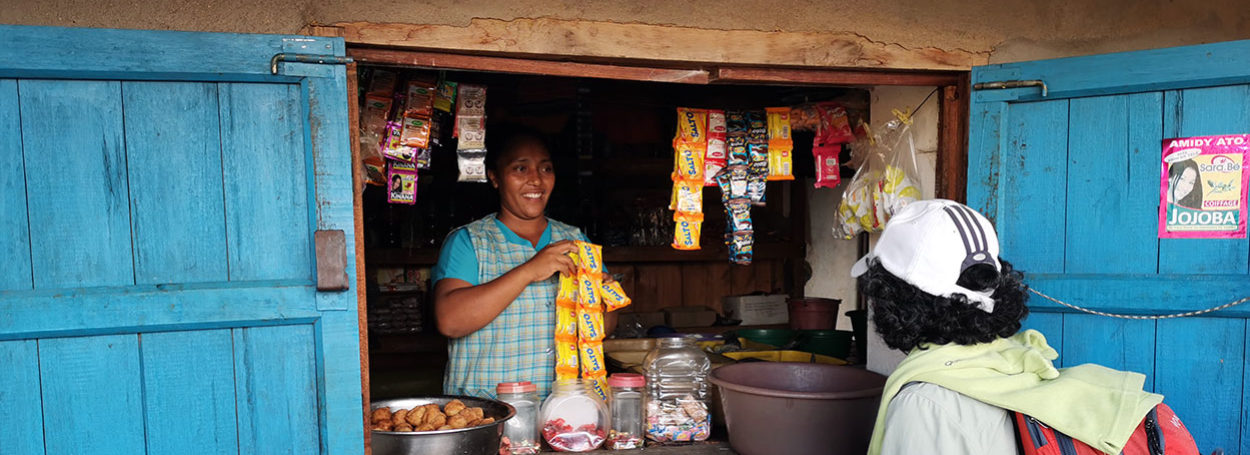
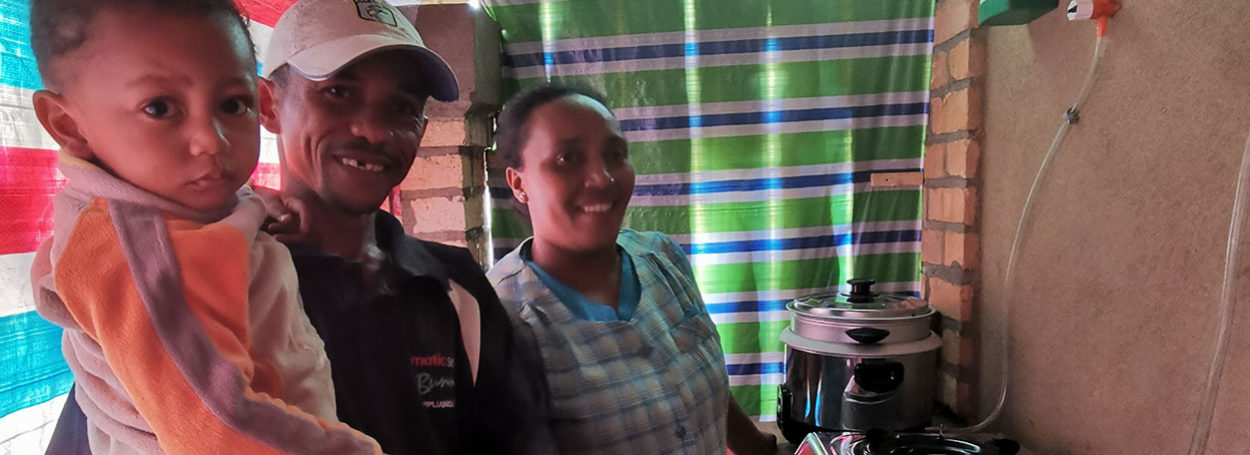
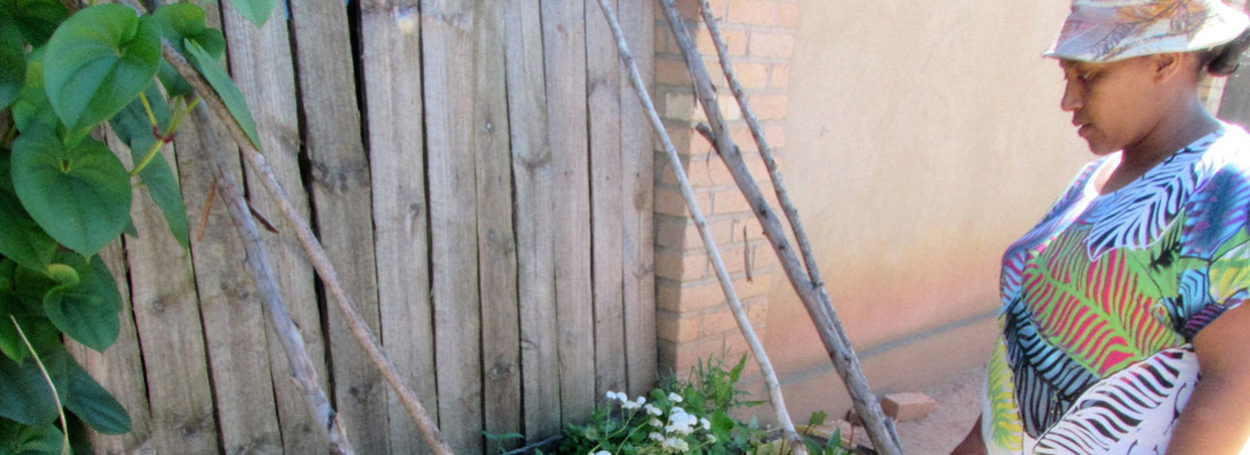
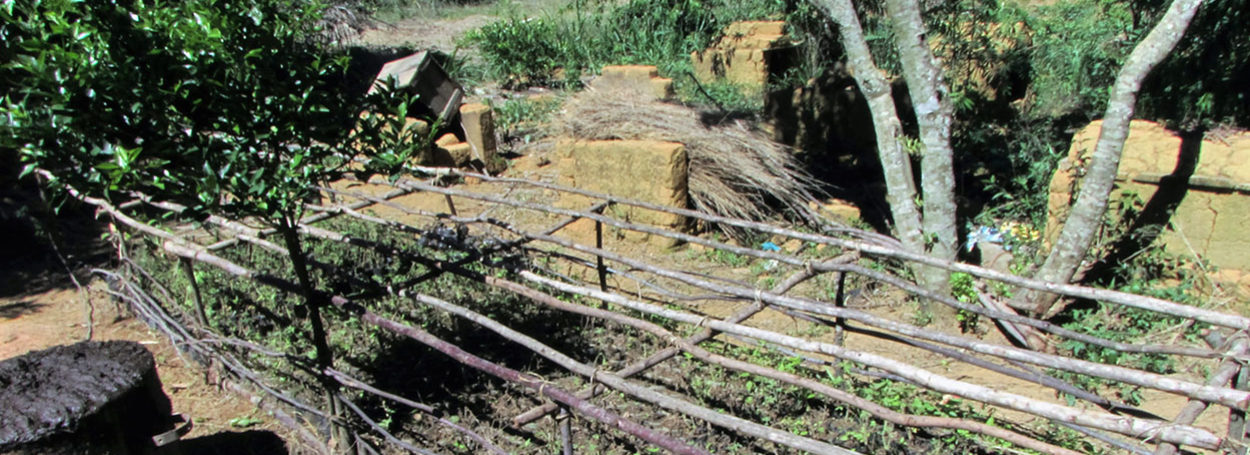
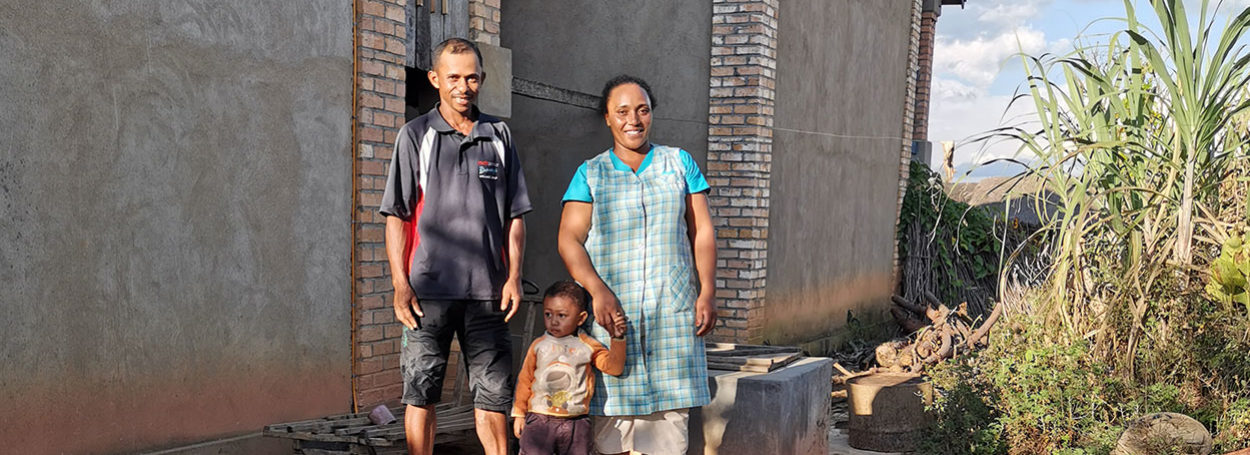
Marie Perline has been able to use a biodigester for a little over a year, thanks to CODEGAZ and the support of the ENGIE Foundation. This installation converts waste from her 3 dairy cows into biogas, which she uses for cooking and lighting, and into digestate that she uses as fertiliser for her crops. Her whole family has benefitted from the change.
Marie Perline has 4 children: “They used to do their homework around the kerosene lamp. They were all at the same table and their eyes were red the next morning. With the gas lamps, they can do their own thing. They’re more focused. And they’re eyes are better.”
The digester also helps her save money on purchases of charcoal (3 times less), oil (4 times less), fertiliser and pesticides. She also earns extra income in her shop, which can now stay open after dark, and from better harvests (tomatoes, fruits, herbs, etc.). She also saves more than 2 hours a day preparing meals thanks to a rice cooker, as rice is a staple of the Madagascan diet. Now she has more time to devote to her family, her pets and her small grocery shop.
This additional income helps with schooling for her three eldest children: the 7-year-old is in primary school, the 13-year-old is in secondary school and she was able to send her oldest, 17, to Hariniaina to study at university.
But Marie Perline does not intend to stop there! She is continuing to develop her work in arboriculture by planting orange trees that reforest the land and will eventually be a good source of additional income. She is also in the process of expanding her herb nursery to produce essential oils.
This is a great example of what biogas can do: it’s a green, renewable energy adapted to these isolated rural areas that also allows women to be more autonomous.
